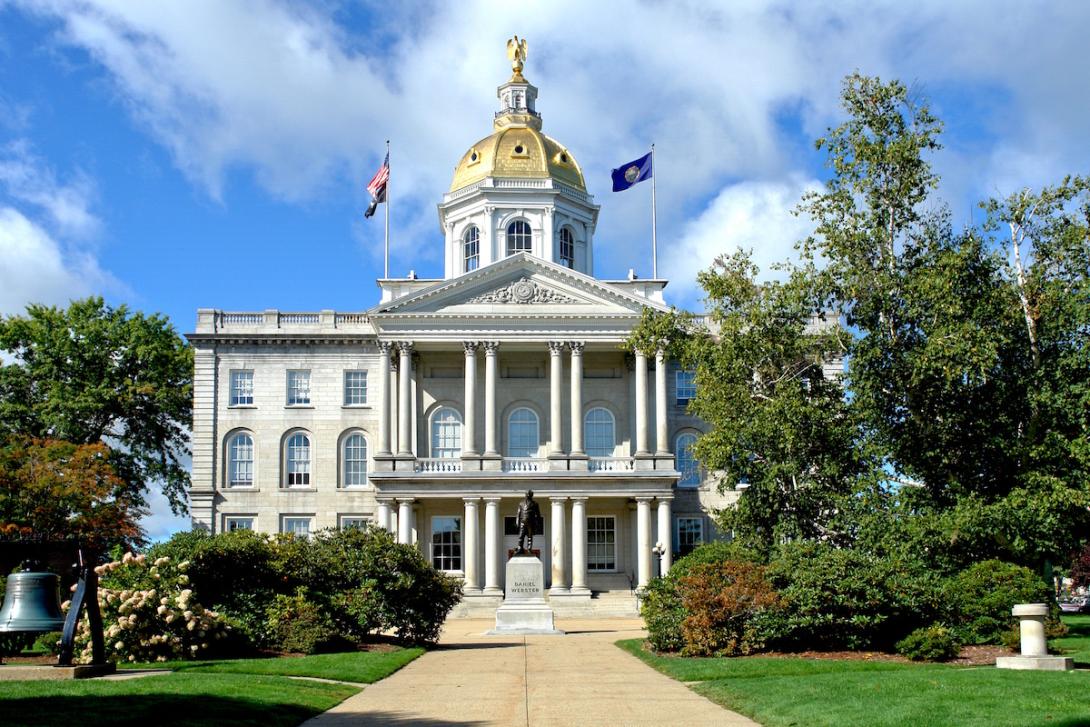Gov. Ayotte has signed a lot of legislation that was passed this session into law. However, (so far) she has vetoed ten bills. Does this mean these bills, for all intents and purposes, are now done?
Not necessarily . . .
There’s a little something extra called “Veto Day” where legislators in both the House and the Senate get the chance to override the governor’s vetoes. A vetoed bill needs to receive a two-thirds majority vote in the House and Senate in order to become law over the governor’s objections. How the process works; vetoed bills go back to the chamber where they originated, House bills going there and Senate bills back to them. If at least two-thirds members of each chamber vote to override the veto, the bill then goes to the other chamber. If they don’t reach at least two-thirds majority, the veto is upheld and the bill dies.
If the bill passes the first vote in one chamber, the process repeats itself for the same bill in the next chamber. Another two-thirds vote is necessary and if attained means the bill passes despite the governor’s veto. Less than two-thirds means the veto is upheld and the bill dies.
There is no set date yet, but it’s looking like sometime in Sept. this will take place. A few examples of the bills that were vetoed recently:
HB 148 was “overly broad and impractical to enforce” wrote the governor. “The language in HB 148 addressing women’s sports is largely redundant and frankly, weaker than the current law. This exact piece of legislation was vetoed by Gov. Sununu last year . . .”
HB 319 was found to be a step in the wrong direction by the governor. This bill would have placed an unnecessary burden on working families by no longer requiring meals and transportation to and from schools for half-day kindergarteners.
HB 324 (where we were all treated to a reading of porn on the chamber floor), the governor noted there is already a law (RSA 186:11:IX-c) requiring school districts to adopt a policy allowing exceptions to certain class materials if a parent, notified two weeks in advance, finds it objectionable. This law already requires for different materials mutually agreed upon by the parent and school district. The governor wrote, “I have concerns that this bill envisions the possibility of extensive civil action over materials in our schools, which could open the door to unnecessary litigation from out-of-state groups.”
Do ya think?
HB 356 was an attempt to have school districts adopt partisan school district elections. Even the governor knows, “Local school boards are run properly and in a nonpartisan manner. Additionally, there is no need to fix a system that is not broken. Making these local elections into partisan fights will create unnecessary division between Granite Staters.”
HB 358 was to create an exemption from immunization requirements based on religious belief. “While parents must be the final decision makers on what immunizations their child receives, the State already has an established process by which parents can claim a religious exemption, and I see no reason to change it.”
HB 667 was an attempt to bring videos into health education courses showing the development of a fetus. Said the governor upon vetoing this bill, “I do not believe the state should dictate to local school districts that they must show a high-quality computer generation or ultrasound video that shows the gestational development of a fetus in health classes. That is not an appropriate role for the State to mandating such requirements.”
This is just a small example of the many redundant, over-reaching and in the case of voting, suppressive, bills that came before the House and actually passed! We’ll see what holds up to the governor’s veto or not on “Veto Day.”

